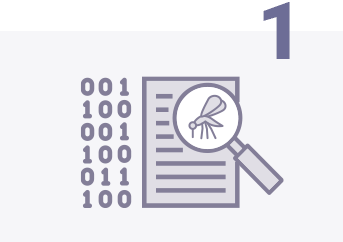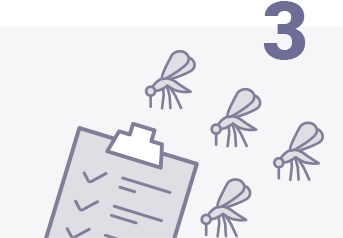
Vector Birth Control in Southeast Asia
Innovative solutions to prevent mosquito-transmitted diseases
Why this project?
Southeast Asia is facing rapid social and environmental change. This is causing new patterns of vulnerability for human health.

These diseases include dengue, chikungunya and Zika, which are transmitted by female Aedes aegypti mosquitoes.
To date, chemical insecticides against mosquitoes have been a core component in the prevention of vector-borne diseases. However, with increasing trends in insecticide resistance among mosquito vectors, as well as residual effects of these insecticides to the environment, there is an urgent need for alternative and effective vector control tools.
Additionally, due to the complexity of disease emergence, transdisciplinary, multisectoral and socioecological strategies are needed to implement such alternative approaches. One such approach includes releasing sterile mosquitoes to reduce vector populations.
The aim
This study aims to investigate the possibility of using sterile mosquitoes as a vector birth control tool to reduce populations of Aedes aegypti mosquitoes in Thailand. The long-term purpose will be to reduce levels of diseases carried by these mosquitoes, such as dengue, chikungunya and Zika.

Super-sterile mosquito technique
Preliminary results from a small-scale pilot study have shown proof-of-concept for the use of a super-sterile mosquito technique to significantly reduce natural populations of Aedes aegypti in a village in Pleang Yao District, Chachoengsao Province, eastern Thailand.
The technique combines two ways of sterilizing insects to create super-sterile male mosquitoes:

The technique involves development and colonization of Wolbachia-infected Aedes aegypti mosquitoes; then separating males from females, sterilizing them by radiation, and releasing only sterile males back into their environment. Female mosquitoes in the wild mate with sterile males and lay eggs that do not hatch.

Over time, this may result in reducing populations of Ae. aegypti mosquitoes in the wild and eventually reducing risk to Aedes-transmitting diseases like dengue, chikungunya and Zika.
The research sites
Priority for the current project will focus on assessing the impact of the intervention on both mosquito vectors and diseases in appropriate study sites in Thailand, within an area with high dengue endemicity.
The following steps are in progress:

Dengue prevalence and incidence data obtained by passive surveillance are included in this study.

The entomological assessment to estimate population density of Aedes aegypti mosquitoes is in progress.

Data from the national disease surveillance system of the Ministry of Public Health of Thailand are being scoped/assessed.

The future sites are currently being identified for the next experimental release of super-sterile Ae. aegypti male mosquitoes.
Key findings from the pilot study
The pilot study performed in eastern Thailand was the first to show that the release of super-sterile male mosquitoes developed using the above technique could suppress natural populations of Ae. aegypti. The next phase of research will possibly build on this pilot study and will include an additional epidemiological component.

